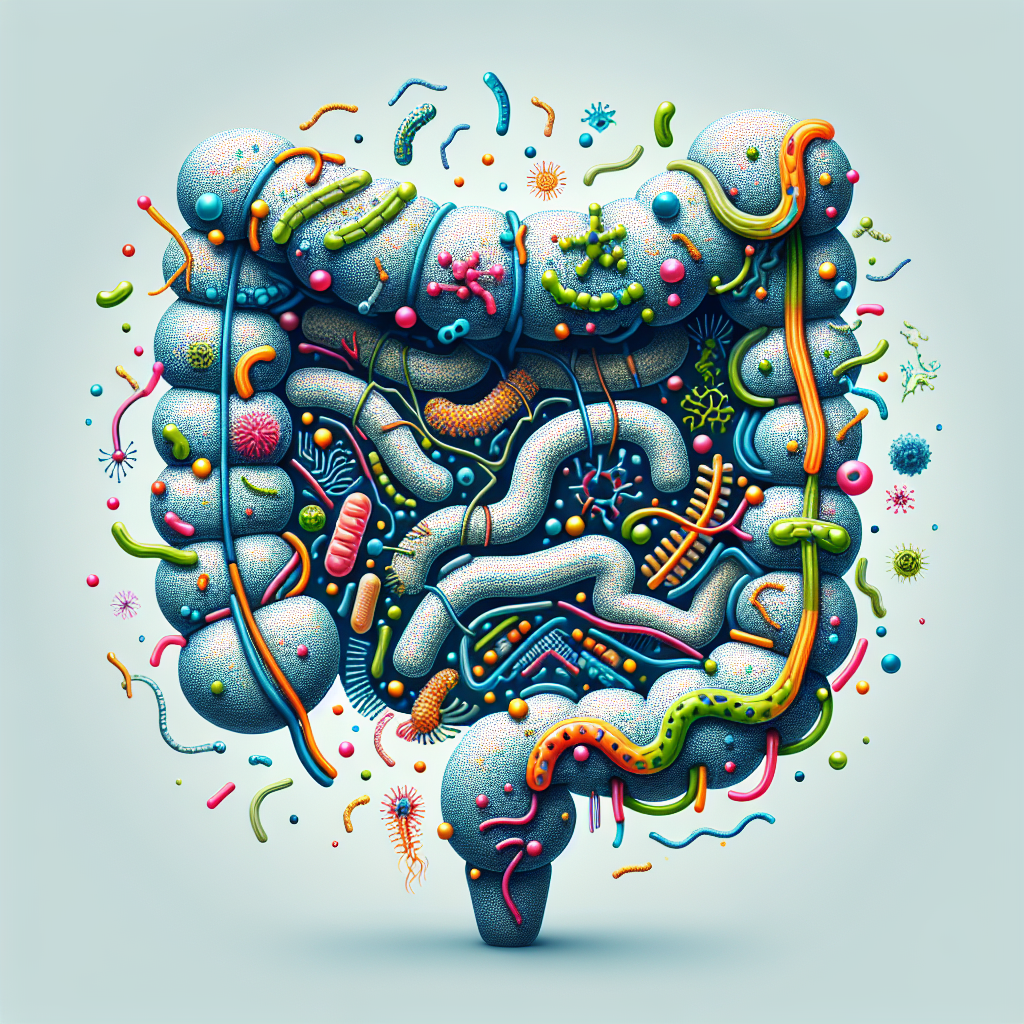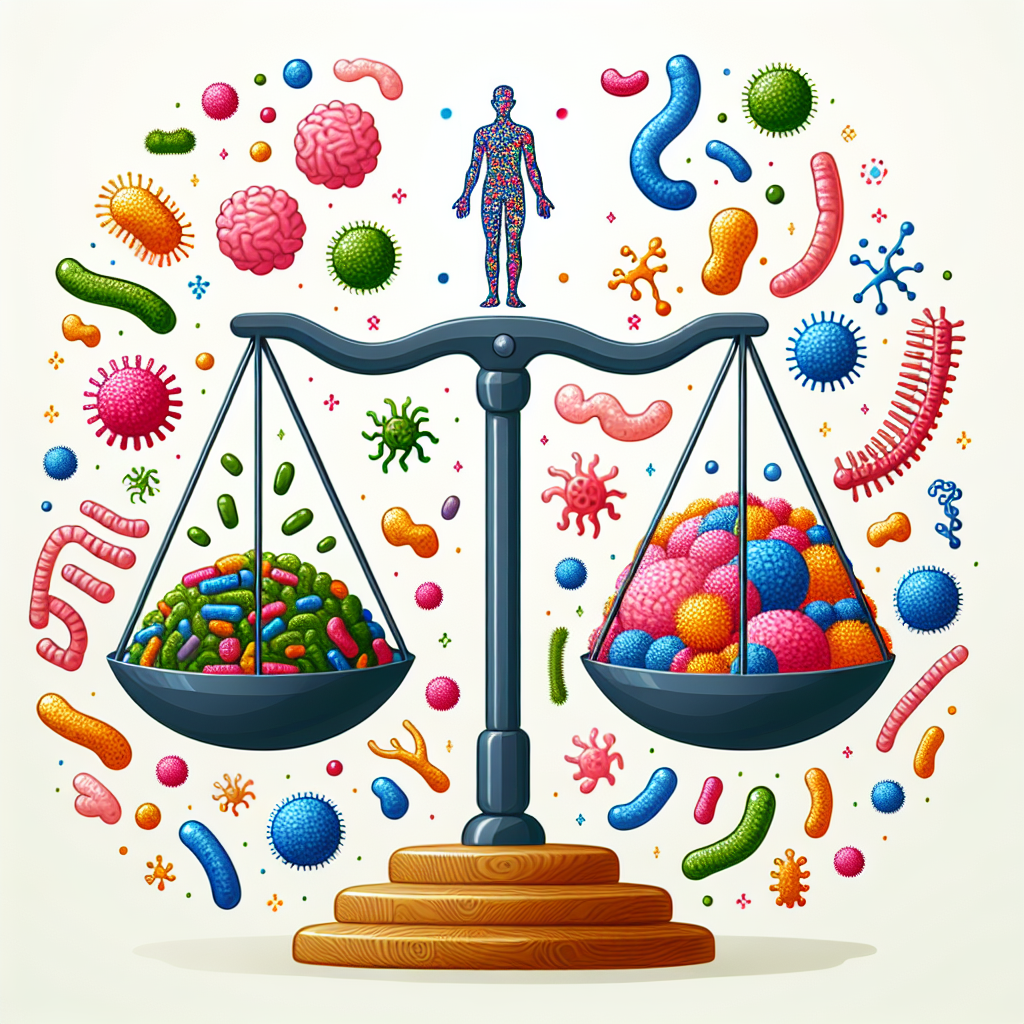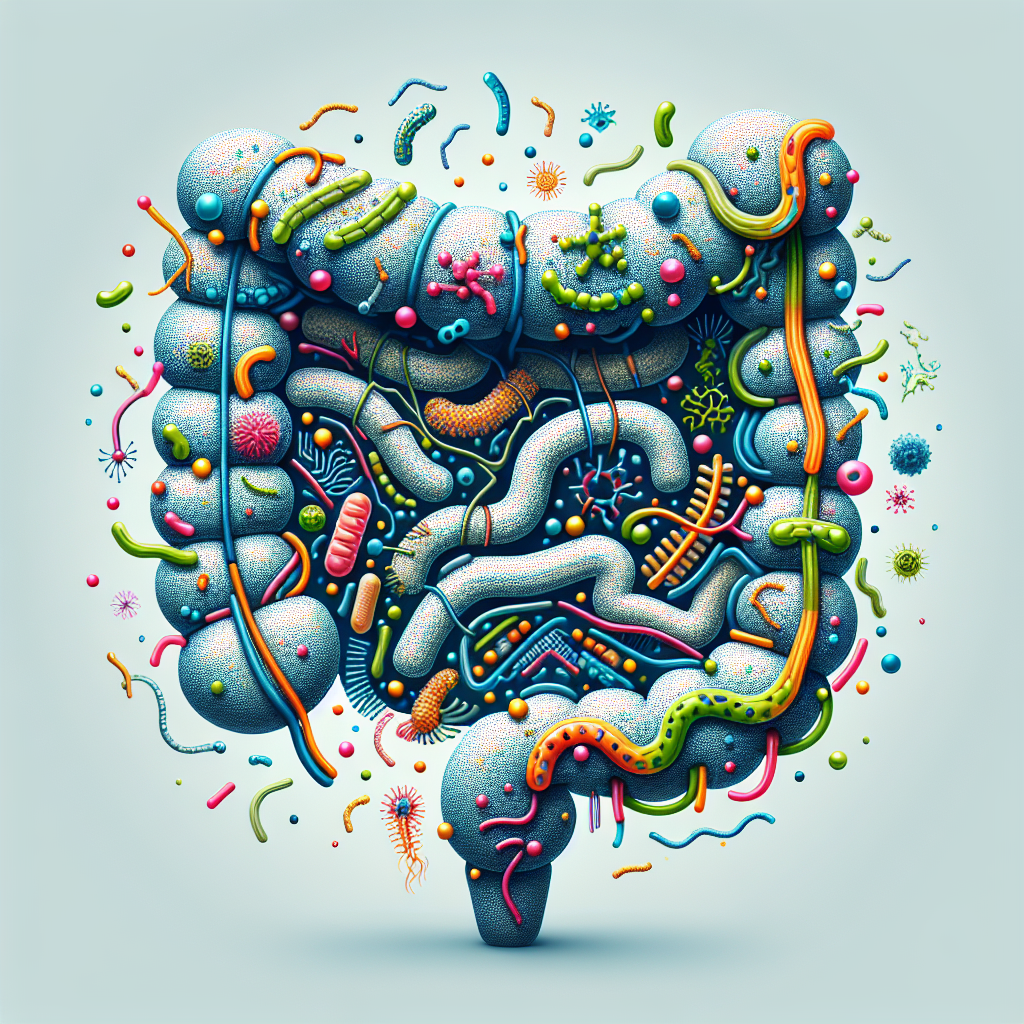If you’ve ever wondered about the inner workings of your gut and how it affects your overall health, then look no further. This article serves as a comprehensive guide that explores the fascinating world of the microbiome and its crucial role in maintaining gut health. Delving into the intricate relationship between our bodies and the trillions of microbes living inside us, you’ll gain a deeper understanding of the microbiome’s impact on digestion, immune function, mental health, and more. So, get ready to embark on a journey into the depths of your gut and discover the importance of nurturing your unique microbiome.
What is the Microbiome?
Definition
The microbiome refers to the collection of microorganisms, including bacteria, viruses, fungi, and other microbes, that reside in and on the human body. It is often described as a complex ecosystem that exists within us. The microbiome plays a crucial role in maintaining our overall health and well-being.
Composition
The human microbiome is diverse, consisting of trillions of microorganisms. While the majority of these microorganisms are bacteria, there are also viruses, fungi, and other microbes that contribute to the overall composition of the microbiome. Each person’s microbiome is unique and influenced by various factors such as genetics, environment, and lifestyle.
Function
The microbiome is involved in numerous essential functions in our body. It aids in digestion, nutrient absorption, and the production of vitamins, such as vitamin K and some B vitamins. Additionally, it helps regulate the immune system and plays a vital role in maintaining gut health. The microbiome also communicates with the brain through the gut-brain axis, influencing our mental health and overall well-being.
Importance of Gut Health
Gut-Brain Axis
The gut-brain axis is a bidirectional communication pathway between the gut and the brain. The microbiome plays a significant role in this axis, as it produces various neurotransmitters, including serotonin, which plays a crucial role in regulating mood and behavior. The health of our gut directly impacts our mental health, and an imbalance in the microbiome can contribute to the development of mental health disorders.
Immune System
A significant portion of our immune system resides in the gut. The microbiome helps educate and develop our immune system, ensuring it functions properly. A healthy microbiome promotes a balanced immune response, preventing excessive inflammation or an overactive immune system. Imbalances in the microbiome can lead to dysregulation of the immune system, increasing the risk of autoimmune diseases and allergies.
Digestive Function
The microbiome plays a crucial role in the digestion and absorption of nutrients. Certain bacteria within the microbiome are capable of breaking down complex carbohydrates and fiber that our own digestive enzymes cannot. They also synthesize vitamins and short-chain fatty acids that contribute to overall gut health. Imbalances in the microbiome can disrupt digestion, leading to symptoms such as bloating, gas, and diarrhea.

Factors Influencing the Microbiome
Diet
One of the most significant factors influencing the composition and diversity of the microbiome is diet. A diet high in fiber and whole foods promotes a diverse and healthy microbiome. On the other hand, a diet high in processed foods and sugar can negatively impact the microbiome, leading to imbalances and dysbiosis. It is important to consume a variety of fruits, vegetables, whole grains, and fermented foods to support a healthy microbiome.
Medications
Certain medications, particularly antibiotics, can have a significant impact on the microbiome. While antibiotics are necessary to treat bacterial infections, they can also disrupt the balance of beneficial bacteria in the gut. Other medications, such as antacids, can alter the acidity of the stomach, which can also affect the microbiome. It is crucial to discuss the potential effects of medications on the microbiome with a healthcare professional.
Stress
Chronic stress has been shown to have detrimental effects on the microbiome. Stress can alter the composition of the microbiome, leading to imbalances. Additionally, stress can disrupt the gut-brain axis, impacting mental health and overall well-being. Managing stress through techniques such as meditation, exercise, and relaxation techniques can help support a healthy microbiome.
Environmental Factors
Environmental factors, such as exposure to pollutants and toxins, can also influence the microbiome. Chemicals found in certain cleaning products, pesticides, and environmental pollutants can disrupt the balance of the microbiome. Additionally, factors such as urban versus rural living and access to nature can impact the diversity of the microbiome. Taking steps to reduce exposure to harmful environmental factors can support a healthy microbiome.
Dysbiosis and its Effects
Definition
Dysbiosis refers to an imbalance in the microbiome, where there is an overgrowth of harmful or pathogenic microorganisms and a decrease in beneficial bacteria. This imbalance can have various negative effects on our health and overall well-being.
Causes
Dysbiosis can be caused by various factors, including a poor diet high in processed foods and sugar, overuse of antibiotics, chronic stress, and environmental factors. Additionally, certain medical conditions and diseases can contribute to dysbiosis. It is important to identify and address the underlying causes of dysbiosis to restore a healthy balance in the microbiome.
Symptoms
The symptoms of dysbiosis can vary and may include digestive issues such as bloating, gas, constipation, or diarrhea. Other common symptoms include fatigue, brain fog, skin problems, and mood disturbances. If you suspect dysbiosis, it is important to consult with a healthcare professional who can provide an accurate diagnosis and guidance on restoring the balance of the microbiome.

Gut-Brain Axis
Definition
The gut-brain axis refers to the bidirectional communication system between the gut and the brain. It involves an intricate network of nerve pathways, neurotransmitters, hormones, and immune cells. The gut and the brain continuously exchange information, influencing various aspects of our physical and mental well-being.
Communication Pathways
There are several communication pathways involved in the gut-brain axis. One of the most well-known is the vagus nerve, which connects the brain to the gut. The gut also produces neurotransmitters, such as serotonin and dopamine, that influence mood and behavior. Additionally, immune cells in the gut release cytokines and other signaling molecules that can affect brain function.
Effects on Mental Health
The health of the gut and the microbiome have a significant impact on mental health. Imbalances in the microbiome can lead to dysregulation of neurotransmitters, such as serotonin, which is closely linked to mood. Studies have shown that a healthy microbiome is essential for optimal mental health and the prevention of mental health disorders such as anxiety and depression. Taking care of our gut health through a healthy diet and managing stress can support a healthy gut-brain axis.
The Role of the Microbiome in Immune Function
Immunity Development
The microbiome plays a vital role in the development and education of our immune system. During infancy, exposure to various microbes helps train the immune system to distinguish between harmful pathogens and harmless substances. A diverse and healthy microbiome supports a robust and well-regulated immune response, helping to defend against infections and prevent the development of autoimmune diseases.
Autoimmune Diseases
Imbalances in the microbiome have been linked to the development of autoimmune diseases. Dysbiosis can trigger an inappropriate immune response, leading to chronic inflammation and damage to the body’s tissues. Conditions such as rheumatoid arthritis, inflammatory bowel disease, and multiple sclerosis have been associated with alterations in the microbiome. Maintaining a healthy and balanced microbiome is crucial for supporting immune function and reducing the risk of autoimmune diseases.
The Gut Microbiome and Digestive Health
Digestive Disorders
Imbalances in the gut microbiome can contribute to various digestive disorders. Conditions such as irritable bowel syndrome (IBS), Crohn’s disease, and ulcerative colitis have been linked to dysbiosis. Symptoms may include abdominal pain, diarrhea, constipation, and bloating. Restoring a healthy balance in the microbiome through dietary changes, probiotics, and lifestyle modifications can help alleviate symptoms and improve digestive health.
Leaky Gut Syndrome
Leaky gut syndrome, also known as increased intestinal permeability, is a condition where the lining of the intestines becomes more permeable, allowing substances that should be contained within the gut to leak into the bloodstream. Dysbiosis and inflammation in the gut can contribute to leaky gut syndrome. This condition has been associated with various health issues, including autoimmune diseases, allergies, and digestive disorders. Supporting a healthy microbiome through proper diet and lifestyle changes can help maintain gut barrier integrity and prevent leaky gut syndrome.
The Impact of Diet on the Microbiome
Prebiotic Foods
Prebiotic foods are a type of dietary fiber that promotes the growth and activity of beneficial bacteria in the gut. Foods such as onions, garlic, bananas, asparagus, and whole grains contain prebiotic fibers that serve as fuel for the microbiome. Including prebiotic foods in your diet can help nourish and support a healthy microbiome.
Probiotic Foods
Probiotic foods contain live beneficial bacteria that can help replenish and restore the microbiome. Fermented foods such as yogurt, sauerkraut, kimchi, and kefir are rich in probiotics. Consuming probiotic foods regularly can introduce beneficial bacteria into the gut and contribute to a diverse and healthy microbiome.
Fiber Consumption
A diet high in fiber is essential for maintaining a healthy microbiome. Fiber acts as a prebiotic, providing nourishment for beneficial bacteria in the gut. It also helps regulate bowel movements and prevent constipation. Including a variety of fiber-rich foods such as fruits, vegetables, whole grains, and legumes in your diet can support a healthy microbiome and promote optimal digestive health.
Medications and their Effects on the Microbiome
Antibiotics
Antibiotics are powerful medications used to treat bacterial infections. However, they can also have unintended consequences on the microbiome. Antibiotics not only kill harmful bacteria but can also disrupt the balance of beneficial bacteria in the gut. This can lead to imbalances and dysbiosis, increasing the risk of gastrointestinal issues, yeast overgrowth, and antibiotic-resistant infections. When prescribed antibiotics, it is important to follow the healthcare professional’s instructions closely and consider probiotic supplementation to support the recovery of the microbiome.
Antacids
Antacids are commonly used to reduce stomach acid and alleviate symptoms of acid reflux and heartburn. However, frequent or long-term use of antacids can impact the microbiome. Stomach acid plays a vital role in preventing the overgrowth of harmful bacteria in the gut. By reducing stomach acid, antacids can disrupt the balance of the microbiome and lead to imbalances and dysbiosis. If antacids are necessary, it is important to use them as directed and discuss potential impacts on the microbiome with a healthcare professional.
Conclusion
The microbiome is an intricate and essential part of our overall health. It plays a crucial role in digestion, immune function, mental health, and overall well-being. Maintaining a healthy and balanced microbiome is key for optimal health. By adopting a diet rich in prebiotic and probiotic foods, managing stress, and being mindful of medications’ potential impact on the microbiome, you can support a diverse and thriving microbiome. Remember to listen to your body, consult with healthcare professionals when needed, and prioritize nurturing your gut health for a happier and healthier you.

